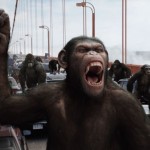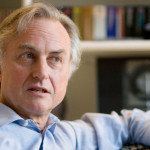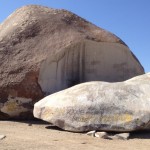The Opening of the Scientific Mind
by Dr. Stacy Trasancos
Filed under Science

David Gelernter wrote an evocative essay for Commentary Magazine (cleverly) titled "The Closing of the Scientific Mind." His essay was a summary of conflicts in modern "philosophy of mind." He criticized the "bullying" against atheist Thomas Nagel who concluded that Darwinian evolution is insufficient to explain consciousness and who was "unwilling" in Gelernter's opinion "to express sufficient hatred of religion to satisfy other atheists."
Then Gelernter discussed the "roboticism" of Ray Kurzweil, a leading technologist and inventor, the director of engineering at Google. Kurzweil, for those who don't know, predicts the "singularity" some time after the year 2045. The singularity—the point when artificial intelligence matches human intelligence and overtakes it. When that time comes, so the theory goes, science will make man immortal by uploading his mind to a machine. He will live forever and be whatever he wants to be, a self-directed evolution.
Gelernter described how science has banished human subjectivity, a vanishing appreciation for the interior human mind, the "room with a view" to our mental states. The materialistic view of "computationalism" likens the mind to software and the brain to a computer, which means there is no interior reality. All is objectively exterior. Gelernter concluded that these flawed views have brought about a closing of the scientific mind, and argues for a "fully human" science.
"A world that is intimidated by science and bored sick with cynical, empty “postmodernism” desperately needs a new subjectivist, humanist, individualist worldview. We need science and scholarship and art and spiritual life to be fully human. The last three are withering, and almost no one understands the first."
I agree. I have some thoughts about what fundamentally closed it and how to open it back up. The underlying flaw, as I see it, affects all of us regardless of religious conviction or lack of it. This flaw is a confusion about the definition of science.
And I blame materialism for this confusion.
So pervasively has a materialistic ideology—the belief that only material things, and what emerges from them, exist—been grafted onto science, that even those who are not materialists may not realize the effect. Materialism shrinks existence into its own box, which happens to be the box science can address. This has dissonant effects. On one hand, materialism magnifies science and makes it appear as if science is the way to gain all knowledge and answer all the questions humans face. Materialism seems to turn science into omniscience. On the other hand, materialism restricts the search for answers to that box, and our human intellect cannot tolerate such confinement.
If existence is both material and spiritual, as most religions hold, then science can only answer some of the questions we face, and not the most important ones about ultimate destiny and purpose. Something has to give if you are a materialist. Either science is limited or existence is limited. Materialism demands that you embrace the latter and reject the former. However, if your worldview allows you to embrace a broader existence, then you have an intellectual means to consider the difficult questions science cannot answer, and you do not expect science to be the savior of mankind.
For the materialists who presume a priori that there is nothing spiritual, it is reasonable that they conclude religion is false, roboticism is possible, and human subjectivity is nothing more than the objective output of the brain running its program. This is consistent with their worldview. While unfortunate, it is not surprising that the materialists would assail anyone who suggests that their presumption was wrong, for that could mean entire careers and deeply held convictions were, from the first steps, on the wrong path.
For the religious, it is likewise reasonable that they would reject the conclusions of the materialists. A body and a soul cannot be reduced to a robot. The subjective experience of the mind cannot be disregarded when this is the intellectual source of our greatest achievements—scholarship, innovation, and art. The pursuit of virtue, knowledge, beauty, and love cannot be illusions because they are the core of who we are. The human experience tells us every day that our existence is bigger than materialism.
The stranglehold of materialism has made it difficult to define science. Consider these common definitions, and remember, the word “definition” means to put boundaries around something.
The Academic Press Dictionary of Science & Technology defines science as “the systematic observation of natural events and conditions in order to discover facts about them and to formulate laws and principles based on these facts.” Where are the boundaries in this definition? “Events,” “conditions,” and “principles” can be interpreted broadly. Under the mindset of materialism, everything is “natural” and thus the search for knowledge is restricted to the laws and principles of matter. Everything is the purview of science.
In 2009 the Science Council in the U.K. announced a new “official” definition of science, the first "official definition of science" ever published according to The Guardian. It took a year for the members of the council to declare science to be “the pursuit and application of knowledge and understanding of the natural and social world following a systematic methodology based on evidence.” This definition is even more ambiguous. If science encompasses the "natural and social world" then indeed where are the boundaries? David Edgerton, professor of the history of science and technology at Imperial College, commented that the definition "would include historical research and indeed some journalism!" (Exclamation is his.) He called it a "good and sensible thing" that the definition does not demarcate "science from the humanities." Atheist philosopher AC Grayling applauded the generality of the definition. This definition is a hat tip to materialism.
Per the definition, love, morality, evil, justice, hatred, and beauty can all be deemed scientific topics, and that seems to be the direction atheists are going. Atheist author and neuroscientist Sam Harris, who wrote the book that claims Free Will is an "illusion" (although he is offering $20,000 to anyone who can make him freely recant his views) and who argues that morality is in fact a scientific subject, recently argued that all scientists should be materialists and that there are "no real boundaries between science and philosophy." So, there it is.
In stark contrast, the late Fr. Stanley Jaki (1924-2009), a physicist and Benedictine priest, used a more precise definition throughout his work because he realized encroachment of materialism decades ago. His definition was not ambiguous. "Exact science is the quantitative study of the quantitative aspects of objects in motion." This definition has boundaries, and it means the same thing as the other definitions if there is a firm commitment not to smother science in materialistic ideology.
Consider how the previous definitions are clarified with Jaki's language. The Academic Press definition could be reworded. Science: the systematic observation of the quantitative aspects of objects in motion to discover facts about them and to formulate laws and principles based on these facts. The U.K. Science Council definition of science becomes: the pursuit of knowledge and understanding about the quantitative aspects of objects in motion following a systematic methodology based on evidence. Why yes! That is physics, chemistry, and cosmology. Biology is about living things, but as an exact science, living things are objects in motion and science studies them quantitatively. Where less exact sciences deviate from this definition, they become subjects for reasoned discourse, but the meaning of exact science is crystal clear.
It is clear that science never could answer questions about the soul, it cannot reveal where consciousness comes from or what consciousness is. And clearly, immortality is not the work of science. As Jaki put it, “And it is always with measurement that the buck stops with science.” (A Late Awakening and Other Essays, 68)
Will committed materialists like this definition? Probably not. Such clarity, after all, leaves no doubt about the limitations of science. However, as Ian Sample, the science correspondent who wrote The Guardian article noted, crossing the scientific line goes both ways. He expressed concern that creationism or intelligent design could be called "science" by that definition, and he was right.
With Jaki's definition, it is clear that science cannot prove God's existence if by "proof" you mean scientific proof. God cannot be weighed and measured, neither can angels, demons, or souls. If you mean logical proof? Yes, science can contribute to proving God's existence with reasoned discourse, in the same way that a child picks a dandelion, stares at it with awe, and says, "Wow, look what God made."
In this way, Jaki's definition is also an important standard for philosophers and theologians. Consider his strong admonishment, an admonishment materialists should appreciate, and one I never forget:
"Whenever a philosopher/theologian yields the fraction of a hairsbreadth on the intrinsic limitation of exact science, he runs the grave risk of the heedless boy who put his hand through the fence of the lion’s cage. The risk is that of a potential tragedy." (Science and Religion: A Primer)
Potential tragedy? Although I cite materialism as the culprit for the present state of high-level ambiguity, theologians and philosophers only worsen the confusion by invoking science to validate their material. Theology and philosophy do not need to rely on science to shore up those disciplines. When theologians and philosophers try to do this, they lend credence to the idea that science can answer all our questions, which has the same effect as materialism. It blurs the definition of science.
Information about quantities of objects in motion is not necessary to defend what reason can discover or God has revealed. Scientific discovery can point to the existence of God, can aid in a deeper understanding of philosophy and theology, but those disciplines should first stand on their own merits. The proof of God's existence can be known by reason, and it can be known whether a person has a complete knowledge of the intricacies of, say, dandelions or not. True, the more the layers of matter are uncovered, the more an admirer can appreciate God's handiwork at its minutest and grandest scales, but even a child can pick a dandelion, grasp nothing other than beauty, and still admire the handiwork of the Creator.
I say we all—anyone of any religion, agnostics and atheists—need to become more childlike in our pursuit of science and enjoy experiencing this awe. This is how to keep the scientific mind open, and it is protected by understanding the boundaries of science and insisting they be respected. There are plenty of examples in the human experience that demonstrate how clear boundaries bring about a true and legitimate freedom. Ask a parent.
Can a non-believer share that awe? Of course. I did when I conducted scientific research before I held any religious conviction. Speaking of my experience, I notice something else in all the essay-writing and dialoguing about science and religion that bears mentioning. There is hardly ever any talk about what scientists actually do. I can testify that in the daily work, where the white coats and Neoprene gloves meet the test tubes and data, rare are disagreements about faith. When faith is discussed, it is in the spirit of camaraderie. "Oh, and what do you believe...okay, let's get back to work." In my experience as a non-religious scientist for over a decade in both academia and the industry, and in global relationships with other scientists of all different religions on four different continents, I never once heard any discussion about this conflict between science and religion, not even from atheists. Not once. Scientists, believe it or not, are curious and open-minded.
It can be frustrating when people who have not done scientific research, and therefore do not appreciate the intensity of the specialization and focus demanded by the detail of investigation, opine on the intersections of science and faith. Sometimes writers and debaters make it seem like people of different worldviews cannot abide each other in the same room, and that simply is not the case. I qualify this, admittedly, as personal experience, but I only heard of the science and religion conflict after converting to Catholicism, mostly from people online who were so biased against the so-called "anti-science" Church that they seemed unable to focus on anything else. I have a suspicion that those who are still painting this mighty image of conflict are 1) relatively few, 2) resoundingly vocal, and 3) probably have not worked alongside a diversity of colleagues in many laboratories.
As I have argued before, science ought to be a place where people come together regardless of religious conviction. Scientists should be applauded for developing new computational skills. Scientists should be encouraged, not impugned, for studying evolution insofar as it involves physical things. Evolution teaches us about the diversity of life, and these discoveries push us to think harder about what it means to be human. Scientists should be praised, not doubted, for pushing the boundaries of physics and cosmology. Even if they are trying to hide from God, as if they could, Catholics should give them the benefit of the doubt. Let them push the boundaries of robotics. Armed with a solid understanding of the limits of science, it is easy to reject the materialistic conclusions that claim science can create consciousness or achieve the immortality of mankind. It is easier, then, to pick out and appreciate the real science. The talk of singularities, as so many other buzz-words have, will likely die out before 2045, but I think it is a worthy question to ask if humans will direct their own evolution some day. Maybe we already are. The study of the physical brain and its cognitive processes and functions should be studied because the brain does influence the mind. Perhaps if it were better understood that neuroscience is a physical, exact science, and psychology a discipline that serves both body and soul, then better advances could be made that heal the whole person, as Gelernter suggested. And maybe people could even stop arguing about whether creationism or intelligent design should be taught in a science class. They should not, and neither should materialism. The fact that science can only deal with matter is not evidence for materialism. Period.
As for grown-up bullies, like those Nagel faced, I see no reason why they should be taken seriously. Bullying is a display of insecurity, the act of a coward. We should ignore them.
In conclusion, if scientists do not cross the line out of science and into ideology, and if theologians and philosophers do not cross the line into science, everyone can watch scientific discovery unfold together. A precise definition allows this. Rather than waxing platitudinous and declaring world peace and "Dandelions for everyone!", I will borrow the 1956 concluding words of one prominent figure who knew all too poignantly the power, and the limitation, of science, non-religious though he was:
"We cannot make much progress without a faith that in this bewildering field of human experience, which is so new and so much more complicated than we thought even five years ago, there is a unique and necessary order: not an order that we can tell a priori, not an order that we can see without experience, but an order which means that the parts fit into the whole and that the whole requires the parts." (Robert Oppenheimer, The Constitution of Matter)
Related Posts
Note: Our goal is to cultivate serious and respectful dialogue. While it's OK to disagree—even encouraged!—any snarky, offensive, or off-topic comments will be deleted. Before commenting please read the Commenting Rules and Tips. If you're having trouble commenting, read the Commenting Instructions.












